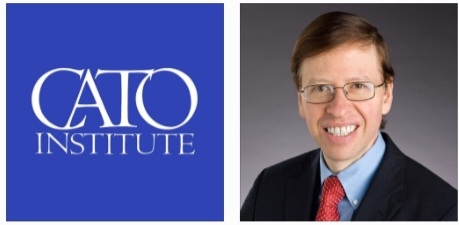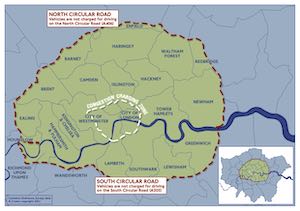Meaningless Political Terms
Date: April 9, 2024
Categories: Articles
Thursday, 13 March 2025
Date: April 9, 2024
Categories: Articles
 Graham Littlechild sadly passed away this year. He was a long standing member of the NLP until falling ill over the last few years. He was very active in leafleting until that time and stood in Council ward elections in London in 2010 and 2014. RIP
Graham Littlechild sadly passed away this year. He was a long standing member of the NLP until falling ill over the last few years. He was very active in leafleting until that time and stood in Council ward elections in London in 2010 and 2014. RIP
Date: March 24, 2024
Categories: Articles

Date: September 7, 2023
Categories: Articles
REGULAR READERS will know that Self-Determination is the raison d’être of National Liberalism. As we noted towards the middle of last month (1) we ‘work towards creating a nation of sovereign citizens – and not a State full of servile subjects.’
We feel that two key elements that’ll help create this ideal is ‘small’ government and the free flow of information.
As National Liberals, we believe that ‘Small is Beautiful’. We wish to devolve power down to the lowest possible common denominator. The people should be close to their government, so everything (as far as possible) should be on a ‘human scale’. Therefore, we’re opposed to ‘big’ government. We are also highly suspicious of those politicians – particularly those who claim to be ‘liberal’ & ‘progressive’ – who seem to want to control every aspect of our lives.
It goes without saying that, if people are to be close to their government, a free flow of information is absolutely essential. And, as Caitlin Johnson (2) has noted, ‘Democracy of the vote without democracy of information is not democracy. It doesn’t matter if people are able to vote as long as the media-owning class are able to manipulate how they vote. “One person, one vote” is meaningless if influence and control of information is highly concentrated in an elite few. And it is.’
With all of the above in mind, we were delighted to come across the following article – which we reproduce below – written by Marc Joffe for the Cato Institute. Marc Joffe is a federalism and state policy analyst at Cato Institute. His research focuses on government finance and state policy issues. The Cato Institute itself is a Washington, DC libertarian think tank with a vison to ‘create free, open, and civil societies founded on libertarian principals.’
As usual, we have kept the original North American spelling. You can read the original article in the link below (3). Please note that there are no official links between the National Liberal Party, the Cato Institute, the Orange County Register & Marc Joffe.
A Practical Case Against Censorship
The skills needed to get elected and to rise through bureaucracies are not necessarily those possessed by the wisest and least self‐interested decision makers.
By Marc Joffe
This article appeared in the Orange County Register (4) on August 1, 2023.

The National Liberal Party has a long-term policy of reproducing, deconstructing & commenting on articles produced right across the political spectrum. Here we reproduce an article – relating the free thought & free speech – by Marc Joffe of the libertarian Washington, DC-based Cato Institute.
IN THE late twentieth century, debates over free speech were typically resolved by citing the First Amendment and observing that freedom of expression was a basic human right. But today, that line of argument is no longer sufficient. Those of us who favor free speech must prove to a skeptical audience that it is a right worth protecting. Since people of good faith now find arguments for censorship persuasive, these arguments should be met on their own terms.
A common view both in California and nationally is that important matters can be resolved by duly elected officials and their appointed experts. The reaction to the COVID-19 pandemic provides an example. Many Californians agreed that the governor, state and county health officials, and the Centers for Disease Control (CDC) should handle the pandemic response. Once a state or county health officer promulgated a policy it was the citizen’s responsibility to follow these pronouncements without objection.
This approach makes sense on its face. Qualified experts chosen by our elected leaders should tell us how to deal with a public health emergency. Anyone using misinformation, disinformation, or malinformation to oppose official policies is merely sewing confusion and potentially reducing compliance, leading to unneeded death and suffering. From this perspective, the logical response is to shut down opposing voices since they are jeopardizing public safety.
This vision of a wise expert class protecting the public from inappropriate information has deep roots in political thought going all the way back to Plato’s Republic. Although Plato’s ideal city did not hold elections, it was ruled by a highly educated and public‐spirited elite empowered to control the flow of information.
But while in ancient Greece, it may have been possible for a small group of experts to accumulate all or most of the relevant information needed to make policy, this is no longer feasible in a complex, modern society. By March 2020, COVID-19 was affecting numerous countries where policymakers were taking different approaches and doctors were trying different treatments. An ideal response would require analyzing all these responses and their results.
This is beyond the capability of a small expert group but can be handled by pluralistic communities of journalists and academic researchers. Media, including scientific journals, can filter through myriad possible policies to help find those that are the best. Liberal intellectuals have made a similar critique of central economic planning: planners are simply unable (5) to accumulate and act upon sufficient knowledge to manage a whole economy. Only through the operations of the market can resources be allocated effectively.
Theoretically, a clique of elite public policymakers could read enough articles and consult with enough outside experts to make a semi‐optimal decision. But there’s a second problem. Advocates of top‐down decision‐making implicitly assume that the decision‐makers are selflessly working on behalf of the community.
But this assumption does not hold. The skills needed to get elected and to rise through bureaucracies are not necessarily those possessed by the wisest and least self‐interested decision makers. There is no reason to believe that those most anxious to obtain and wield power will make the best decisions.
Indeed, Nobel Laureate F. A. Hayek argued (6) that the worst people tend to get to the top of government power structures. Hayek’s analysis focused on totalitarian governments in the run up to World War II, but similar dynamics are at work in contemporary democracies.
A retrospective look at the state and federal COVID-19 response reveals a pattern of suboptimal communications and decisions. These include an initial lockdown that excluded big box retailers and public transit, needless beach and park closures that limited opportunities for exercise and fresh air, extended reliance on remote schooling, despite its obvious flaws, and vaccine mandates for high school and college students known to be at minimal risk of severe COVID outcomes.
Those of us who questioned these policies were often ridiculed but could not be completely silenced thanks to constitutional protections. Ultimately, public pressure forced the relaxation of lockdowns and the reopening of schools. Had policymakers been insulated from public debate, and, yes, even ridicule, these destructive policies could well have persisted.
Elites are not capable of governing optimally even if they are motivated to do so. Open debate serves as an essential check on power that often leads to better decisions. So even for those who are not persuaded that free speech is a natural right, it’s worth defending as a tool for better governance.
(1) https://nationalliberal.org/
(2) https://www.caitlinjohnst.one/
(3) https://www.cato.org/
(4) https://www.ocregister.com
(6) https://fee.org/resources/the-
Date: August 15, 2023
Categories: Articles

• ALSO CHECK OUT:
The National Liberal Party Has Asked Four Questions – Can You Answer Them? https://nationalliberal.org/
The National Liberal Party Has Asked Four More Questions – Can You Answer Them? https://nationalliberal.org/
The National Liberal Party Has Asked Another Four Questions – Can You Answer Them? https://nationalliberal.org/
The National Liberal Party Asks … Should All Public Transport Be Free? Join The Debate! https://nationalliberal.org/
The National Liberal Party Asks … Should We Scrap The TV Licence Fee? Join The Debate! https://nationalliberal.org/
The National Liberal Party Asks … What’s Behind The Rise In Autism? Join The Debate! https://nationalliberal.org/
Date: August 9, 2023
Categories: Articles

A map – from Transport for London (TfL) – showing the extent of London’s ULEZ zone. In three weeks, it’ll be extended to take in all of Outer London. Is it any wonder that many people believe that Ulez is simply cover for a war on drivers & another form of stealth tax?
LONDON’S HARD-PRESSED motorists hate Sadiq Khan’s ULEZ (Ultra-Low Emission Zone) scheme with a passion.
Khan – who has been the Labour Mayor of London since 2016 – introduced ULEZ over four years ago on 8th April 2019. Prior to that, he’d introduced an emissions surcharge, called the Toxicity Charge (sometimes known as the T-Charge) in 2017.
Under both schemes, an emissions standard based charge has been levied on what are termed non-compliant vehicles.
Initially the scheme covered inner London boroughs. The ULEZ zone was later extended to cover the area within the North Circular and South Circular roads. Now Khan wants to extend the scheme – to include outer London boroughs – towards the end of this month.
It’s thought that car use is higher in outer London boroughs. This is due to fewer public transport links. Here ULEZ could become a cash cow for Khan when it’s introduced on 29th August. However, many believe that it could really impact on both businesses & households who’re still struggling with the cost-of-living crisis.
ULEZ operates 24 hours a day, seven days a week. However, Khan can’t be accused of being the Grinch as vehicles are exempt on Christmas Day!
Vehicles which do not meet emissions standards incur a daily charge of £12.50. And the fine for failing to pay is £180.
Those who scrap their cars in order to buy a ‘compliant’ vehicle can access up to £2,000 from a scrappage scheme. Whilst this is welcome, these days it’ll hardly make much of a dent in the price of a brand-new car. No wonder many people believe that ULEZ is simply cover for a war on drivers (and another form of stealth tax).
Khan insists that the limitations on vehicle emissions reduces pollution. However, we’ve never seen any statistics – relating to London’s pollution levels – on which the restrictions are based. Neither have we seen statistics relating to pollution levels prior to & after the charges were introduced. Indeed, how many Londoners have died solely from vehicle-related pollution?
With the above in mind, we’d be interested to know who produced the statistics & if they were peer reviewed. Additionally – and especially in the light of Covid – we’d be particularly interested to know if there’s the slightest whiff of a conflict of interests between the different parties involved.
We mentioned earlier that many people believe that ULEZ is simply cover for a war on drivers (and a form of stealth tax).
We have some sympathy with this point of view. Many people simply have to have a car for family and/or work reasons. Self-employed workers who need various tools to work are an obvious example.
Individual drivers are not responsible for the fumes that their vehicles emit. That’s down to the car manufacturers. But Sadiq Khan is on the Blairite ‘social democratic’ wing of the Labour Party. That means he’d never pick a fight with large transnational corporations like Ford, Nissan & Vauxhall. Therefore, the driver – and not the manufacturer – has to pay!
In addition, Blairites would never take on the Money Power in respect of taxation. Therefore, drivers – and everyone else for that matter – have to pay.
We feel that there’s also some merit in the argument that ULEZ is all about power & control. Could they be one way of paving the ground for government sanctioned 15-minute cities?
With all of the above in mind, it’s clear that action does need to be taken in London & our other cities.
We wouldn’t be surprised to learn that overpopulation & the sheer size of our cities lead to alienation, pollution and many forms of ill health (and especially mental health problems).
But what should be done?
We hope to take a look at various radical solutions in the near future. As National Liberals, our watchword is ‘Small is Beautiful’. Therefore, our solutions would be centred around Distributism, the Social Credit ideas of C. H. Douglas, Co-operatives and other ‘human scale’ activities like Permaculture.
In the meantime, we’d like to hear ideas from our readers on how they would tackle pollution in cities like London. Simply let us know in the comments section when you see this article on the National Liberal Party’s Facebook page – https://www.facebook.com/
Date: August 8, 2023
Categories: Articles
By continuing to use the site, you agree to the use of cookies. more information
The cookie settings on this website are set to "allow cookies" to give you the best browsing experience possible. If you continue to use this website without changing your cookie settings or you click "Accept" below then you are consenting to this.